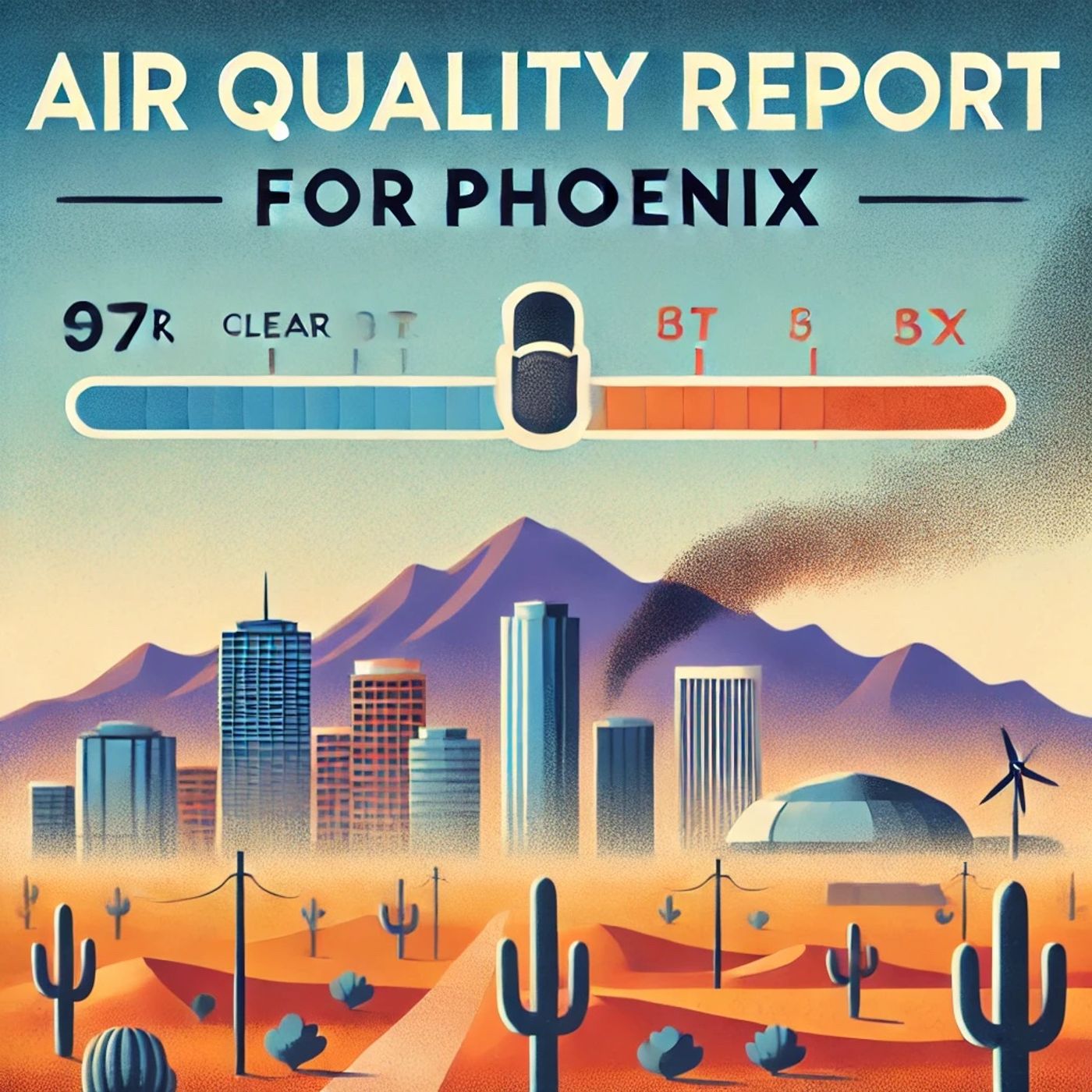Listen "Phoenix's Air Quality Raises Moderate Concern Amid Expanding City and Industry"
Episode Synopsis
Today's air quality in Phoenix is a matter of growing concern, especially as the city continues to expand and industrial activities increase. The Air Quality Index, or AQI, is a tool used by the Environmental Protection Agency to communicate how polluted the air currently is or how polluted it is forecast to become. Today, Phoenix's AQI has reached moderate levels, indicating that while the air quality is acceptable, there are still pollutants present that may pose a risk to individuals who are particularly sensitive to air pollution.One of the primary pollutants affecting Phoenix's air quality today is ozone, a gas that forms when pollutants emitted by cars, industrial facilities, and other sources chemically react in the presence of sunlight. Phoenix's hot and sunny climate exacerbates this issue, making it a significant factor in the overall AQI. High levels of ozone can lead to various health problems, including respiratory issues, aggravation of asthma, and other lung diseases. Children, the elderly, and individuals with pre-existing health conditions are particularly susceptible to the adverse effects of ozone exposure.Another contributor to today's air quality is particulate matter, specifically PM2.5 and PM10. These tiny particles can penetrate deep into the lungs and even enter the bloodstream, causing cardiovascular and respiratory issues. Sources of particulate matter in Phoenix include construction activities, vehicle emissions, and natural sources such as dust storms. The city's arid environment makes it prone to dust events, especially during the monsoon season, further worsening air quality.In addition to these pollutants, Phoenix is also experiencing elevated levels of nitrogen dioxide and carbon monoxide today. Both of these pollutants primarily come from vehicle emissions and industrial activities. While the levels are not exceedingly high, they contribute to the overall moderate AQI and can still pose health risks, particularly for individuals with respiratory conditions.Local authorities have issued advisories urging residents to take precautions, especially those who are more vulnerable to air pollution. It is recommended to avoid outdoor activities during peak pollution hours, usually in the late afternoon and early evening when ozone levels are at their highest. Using public transportation, carpooling, and reducing the use of gasoline-powered equipment can also help mitigate the impact of these pollutants.Efforts are being made by city officials and environmental organizations to improve air quality in Phoenix. Initiatives such as expanding public transportation networks, promoting green building practices, and increasing the use of renewable energy sources are some of the steps being taken to address this pressing issue.In summary, while today's air quality in Phoenix is classified as moderate, it still presents several health risks, particularly for sensitive groups. Ozone, particulate matter, nitrogen dioxide, and carbon monoxide are the primary pollutants contributing to today's AQI. Residents are advised to take necessary precautions to minimize exposure, and ongoing efforts aim to improve the air quality in the long term.This content was created in partnership and with the help of Artificial Intelligence AI
More episodes of the podcast Phoenix Air Quality Report - Daily
Phoenix Enjoys Excellent Air Quality Today
23/08/2025
 ZARZA We are Zarza, the prestigious firm behind major projects in information technology.
ZARZA We are Zarza, the prestigious firm behind major projects in information technology.
